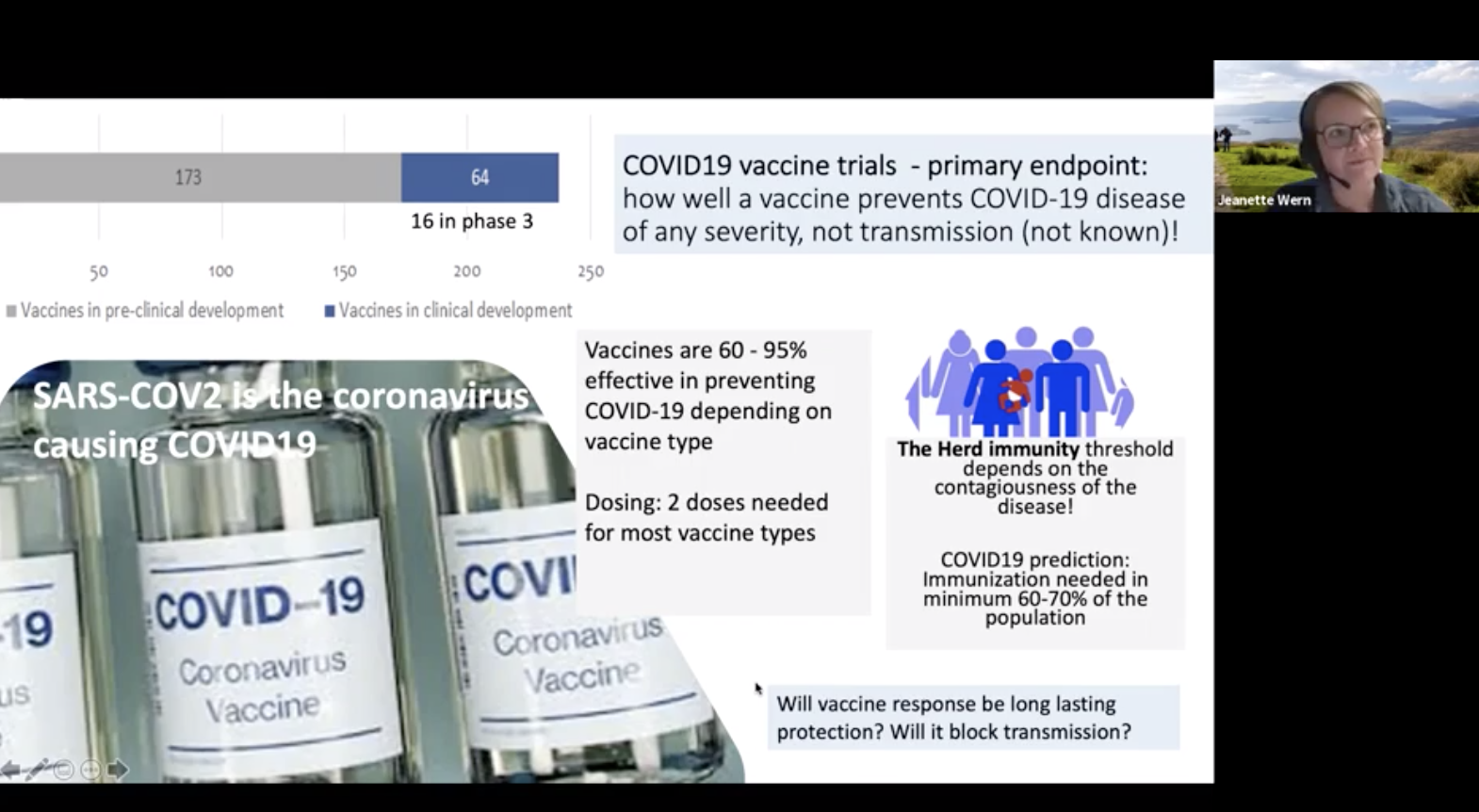A hundred students recently gathered for a virtual panel discussion with international experts to learn about COVID-19 and vaccine distribution in Europe.
Experts in immunology, economics and bioethics joined the Elon community for an international panel discussion of the COVID-19 pandemic and the ethics of vaccine distribution on Jan. 20.
Around 100 Elon students attended the virtual COVID-19 Interdisciplinary Scandinavian Panel, organized by Elon’s Center for Research on Global Engagement and moderated by Assistant Professor of Philosophy Lauren Guilmette. The virtual discussion was centered on the theme “People are dying. Whom do we save first with the COVID-19 vaccine.”
The panel included three experts from DIS, the institution formerly known as the Danish Institute for Study Abroad. Jeanette Erbo Wern, who holds a doctorate in immunology, discussed the coronavirus and vaccine development. Holger Sandte, who teaches globalization and European economics, health economics and applied econometrics, focused on the economic impact of the pandemic. David D. Possen, who has been with DIS since 2014, discussed bioethical decisions related to vaccine distribution.
Those who would like to watch a full replay of the discussion can do so, with an Elon login and password, here.
Panelists for the COVID-19 Interdisciplinary Scandinavian Panel included (left to right) Jeanette Erbo Wern, David Possen, and Holger Sandte.In a discussion of social responsibility during the pandemic, Possen highlighted the people of Denmark and their willingness to protect their community from the virus. In his presentation, Possen referenced the Commission for Danish Language’s word of the year, “samfundssind,” which roughly translates to civic-mindedness and the need to put society above one’s self.
“Even in a society like Denmark that has a very high trust level and where people identify much more with the common goal, it’s been very interesting for me to live through this as an American,” Possen said. “To see the intensity with which ordinary Danes remind one another, ‘no, no, you really can’t just worry about what you need – what’s best for you – and let society take care of itself.’ This is a crisis where everyone has to put society first, otherwise we will all suffer.”
Following presentations by each expert, students broke out into small, virtual groups for an exercise that challenged them to consider a variety of people – frontline workers, teachers, the elderly, professional sports interests and minority/ethnic groups – and the order in which each should ethically be considered for vaccine administration.
The panel discussion also included a question-and-answer session in which students asked panelists about a number of topics, ranging from media coverage of the pandemic to a potential timeline for when we might expect to see the end of COVID-19.
“That’s a hard question,” Wern told students attending the virtual event. “In the countries that can vaccinate fast, you could hope that when you go out of 2021 it is something that can be put behind us, and that’s also what I hope, but I think we have to accept the fact that it will be around us the whole 2021. Hopefully in the fall it will begin to look better, but it will still be around us.”
When asked about the potential for a societal awakening following the pandemic, similar to that of the post-Depression era, Sandte said he is hopeful that something positive – possibly international cooperation – can come out of this modern-day of crisis.
“When this is over, the litmus test maybe could be whether the world community wants to tackle climate change, whether they want to cooperate on that better than they did during the COVID-19 pandemic,” Sandte said. “So more cooperation and an awareness for cooperation would be one of the good outcomes of this pandemic.”



